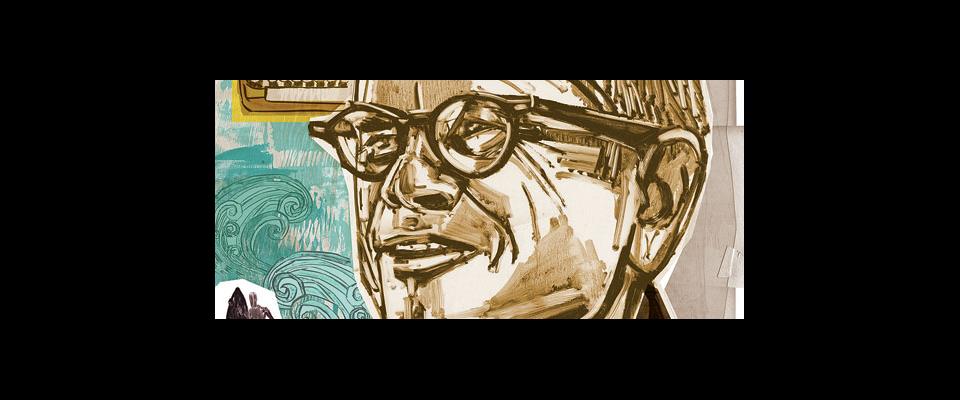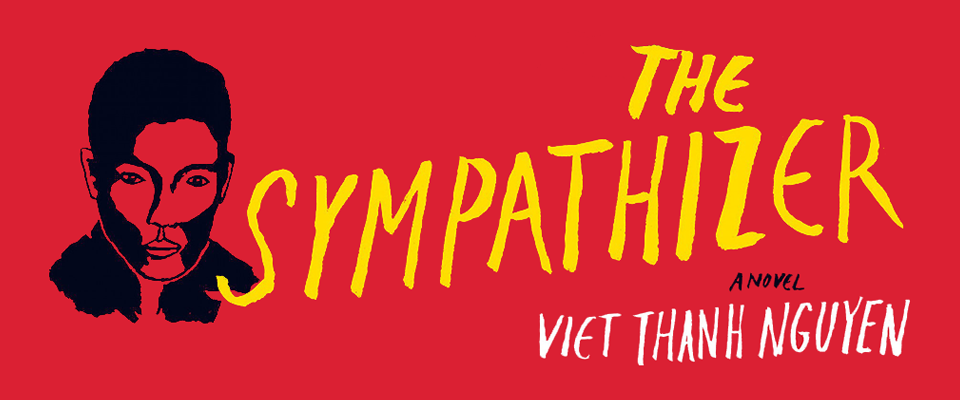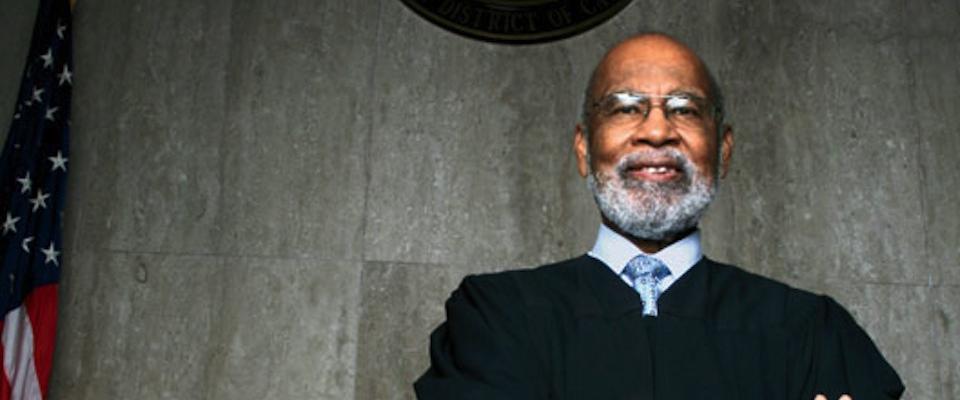The political fictions of Eugene Burdick.
The Berkeley “Teach-in,” held over the course of one cold, windy weekend in May 1965, helped set the template for countless Vietnam protests to come. The 33-hour marathon drew senators and journalists and activists, mimes and comedians and folk singers, all of whom railed against American involvement in Southeast Asia. Norman Mailer spoke; so did Dr. Spock. Slogans blared “Let’s Make Love, Not War.” People went barefoot. Dogs roamed free.
The biggest villain, naturally, was President Lyndon Johnson, who that year ordered the first American combat troops into Vietnam. The second biggest villain might have been Eugene “Bud” Burdick, a 46-year-old Cal political science professor and novelist—coauthor, with William Lederer, of The Ugly American and, with Harvey Wheeler, of Fail-Safe, best-sellers that had been turned into Hollywood movies. A foreign policy expert with strong opinions about America’s role in Southeast Asia, Burdick, though obscure today, was then one of the country’s best-known public intellectuals, a member of blue-ribbon commissions and a friend of Brando and Bergman. He had been scheduled to speak in defense of the administration but withdrew at the last minute. What had been billed as educational, he complained, had degenerated into an “ideological circus” run by people who didn’t know anything about Vietnam. In an interview with KPFA he sounded exasperated. “It’s a gathering of people who are already committed to one view or another,” he said. “This is not a dialogue, it is a sort of shrill harangue.”
Burdick was right about the Teach-in—it was a revival, not a seminar—but the observation didn’t win him any points with his critics, who viewed him as a tool of the establishment. On stage that weekend, one speaker after another excoriated him as an imperialist, a stooge, a warmongering shill. In fact, Burdick was an exemplar of an almost forgotten American species, the Cold War liberal. While a champion of civil rights and free speech, he was almost as strident in his anti-Soviet rhetoric as a John Bircher. “I’d rather be dead than Red,” he told an Alumni House crowd in 1962. “If the Russians did take us over…that life might not be livable.”
Today, this blend of tolerance at home and hawkishness abroad is the province of neoconservatives, the people who brought us the Iraq war. Back then, it was simply mainstream liberalism, grounded in the unshakeable conviction that it was America’s mission to export its values to the rest of the world. Burdick could easily have been one of Defense Secretary Robert McNamara’s “Whiz Kids,” the cadre of technocratic defense planners who helped lock America into a conflict it couldn’t win. With his horn-rimmed glasses, rep ties, and close-cropped hair, Burdick even looked the part.
Burdick’s only deviation from ideological orthodoxy may have been his advocacy for nuclear disarmament—”the only escape,” as he explained it, from the certain annihilation that World War III would bring. Fail-Safe, a 1962 thriller he coauthored, movingly dramatized his fears.
Like virtually everyone else whose opinion mattered back then, Burdick saw the world through a Cold War lens. Even most humanitarian efforts at that time had strategic undertones—moves in a global chess match with the communists. With Burdick acting as consultant, a Cal law school grad named Joseph Blatchford founded Accion, an aid organization aimed at checking communism’s spread in the developing world. Blatchford, who later became director of the Peace Corps, says the Cold War filter “was part of the fabric of everything. It just seemed obvious.”
Two months after the Berkeley Teach-in, in July 1965, Burdick died of a heart attack on a San Diego tennis court. The war in Vietnam soon spiraled out of control. Watts and Detroit burned, and campuses across the nation rose in revolt. The elite policymaking consensus of which Burdick was a part collapsed, a victim of the cultural and political ferment of the 1960s. But even if Burdick was on the wrong side of history, many of his views on the use of American power are as relevant now as they were a half-century ago.
Born in Iowa in 1918 but raised in Los Angeles, Burdick grew up surfing long before surfing was cool—a bit of backstory that, down the line, must have enhanced his image as a sort of intellectual action hero. It was no act. Even his childhood was marked, as he put it, by “an odd benign mingling” of high and low, mind and body. His father, a committed socialist who named his son after labor leader Eugene Debs, died soon after the family moved to Los Angeles, and Burdick’s mother married a cellist in the Los Angeles Philharmonic. “We came in off the beach,” he later recalled, “tanned and exhausted, and put on little white collars and black velvet pants and sat through chamber music until it poured out of our ears. To this day I cannot abide serious music. It makes me scratch all over.”
His resume was astonishingly varied and impressive. As a Navy commander in the Pacific during World War II, he swam through flaming oil to rescue his fellow sailors from a sinking ship. Before arriving at Berkeley in 1952, Burdick earned an M.A. in psychology from Stanford and a Ph.D. in philosophy from Oxford, where he was a Rhodes scholar. His first short story won an O. Henry prize, and in the last ten years of his life he wrote or cowrote seven books, along with Hollywood screenplays and a raft of magazine articles on everything from Polynesian culture to the history of the Democratic Party.
His celebrity was such that he starred in an ad for Ballantine Ale (“He’s Eugene Burdick…Pacific explorer…literary man…ale man.”), and he used the wealth that fame brought him to build a South Seas vacation home on the island of Moorea. A sports-car fanatic, he tooled around Berkeley in a Jaguar XKE. Chalmers Johnson, an Asia expert and the author of many books, studied political philosophy under Burdick. “I had this red-hot Triumph,” Johnson remembers, “and he was always asking me to take him for a drive. We’d usually go up into the hills, going around corners very fast.”
At its best, Burdick’s writing was both hard-edged and lyrical. In a 1965 essay on California culture for Holiday magazine, he recounted the youthful games of arson he played with his friends. “The outskirts of Los Angeles are covered with grass and extend for thousands of acres,” he wrote. “There is a magic second, in the spring, when the low, rolling hills become flammable.… The trick was to anticipate the moment when conflagration could be achieved. Then be the one to burn the city.”
Whether that pyromaniac urge was real or not, Burdick captured the Southland’s sunnily apocalyptic vibe as well as anyone ever had—and a few years earlier than Joan Didion ’56, who would make her name with similarly portentous descriptions of the Golden State. For the most part, however, his novels got mixed reviews and were more notable for their provocative ideas than their literary style. Assessing his 1964 novel, The 480, a reviewer in The New Yorker lamented “slogging through three hundred and ten pages of Mr. Burdick’s spiritless prose.”
Burdick’s sprawling first novel, The Ninth Wave, was a sort of dystopian potboiler that combined California politics and surfing. Much of the prose is spirited, but the performance woefully uneven. Some parts are overwritten, with entire paragraphs devoted to, say, describing a man’s suit. Other passages are pocked with stilted tough-guy talk: “‘You a bully, eh? A tough egg,’ he said softly, with pleasure. ‘You like to kick people round. Maybe we’ll kick you around.'” It probably didn’t help that Burdick dictated his stories into a tape recorder, without editing.
Still, The Ninth Wave is in many ways eerily prescient. Burdick’s main character, an amoral political consultant (and surfer) from L.A. named Mike Freesmith, cracks the code of the modern election campaign. Using the nascent science of computer-aided opinion polling, he slices-and-dices the electorate into easily manipulated blocs, then jacks up the fear and hate quotient to put his demagogic candidate on the road to the governor’s office. When asked what his secret is, Freesmith sounds depressingly au courant: “You scare them into voting for your man.”
His Teach-in opponents notwithstanding, Burdick was always more of a loyal critic of American policy than a slavish booster. His novel The Ugly American (cowritten with William Lederer, another Navy man with experience in Asia) made the case that Vietnam was worth fighting for; we just weren’t doing it right. Set in the imaginary Asian kingdom of Sarkhan, the book presents a set of cartoonish, barely fictionalized vignettes illustrating how America’s overseas representatives—most of them “second-raters” ignorant of the customs and cultures of their host countries—were losing the struggle for hearts and minds to the Soviet Union. “We have been losing—not only in Asia, but everywhere,” the authors wrote in a hand-wringing afterword, noting with alarm the apparent march of communism across the globe. “Without pitting one Soviet soldier against one American soldier, the Soviet has won a staggering series of victories.”
The Ugly American caused a sensation. President Dwight D. Eisenhower first praised it and then changed his mind, deriding it as a “sickening” insult to the foreign service. Others endorsed the message. Declaring the book “a devastating indictment of American policy,” Robert Trumbull, a New York Times Asia correspondent, wrote, “Any correspondent who has been any length of time in the locale of the story…will recognize its veracity.”
Much of the establishment also approved of Burdick and Lederer’s twofold solution. First, abandon the embassy cocktail parties and white-elephant infrastructure projects, and instead send Americans with practical expertise—engineers, farmers, and the like—to work with locals, on the ground, to develop their countries. These new emissaries “must speak the language of the land of their assignment, and they must be more expert in its problems than are the natives.” Their second prescription complemented the first. America, they argued, must embrace counterinsurgency theory, eschewing set-piece battles full of high-tech weaponry in favor of an intelligence-heavy approach that met the guerrillas on their own terms. It was a tough sell at the Pentagon. In an illustrative scene in The Ugly American, a typically clueless American general chews out a couple of savvy young officers. “I never heard such damn nonsense in my entire life.”
The ideas in the novel would eventually gain traction, of course. The notion that Americans should get out of their diplomatic compounds to work with the locals was the intellectual underpinning of the Peace Corps, which President John F. Kennedy (who was said to be a fan of the book) inaugurated a few years later. And Lyndon Johnson would adopt the rhetoric of counterinsurgency theory, regularly extolling the importance of winning the “hearts and minds” of the Vietnamese.
Still, Burdick’s tactical astuteness was in service of a questionable strategy. For starters, the premise of the war was dubious: The domino theory, as it turned out, was little more than a fantasy of RAND analysts. And even now it’s difficult to say just what “victory” in Vietnam would have looked like. Burdick didn’t seem to realize that to Third World eyes, our presence in Vietnam looked awfully imperialistic. For a guy who detested lazy thinking, this was a significant blind spot.
We’ll never know, of course, how his political views would have changed with time, although it’s doubtful that the mass protests of the ’60s would have softened his opinions. Throughout his work runs a loathing of crowds, from the fearful, hateful voters in The Ninth Wave to the protestors in Sarkhan (the 1965 sequel to The Ugly American) goaded by Red provocateurs into burning the American flag. “I object to mixing really serious issues with mob psychology,” Burdick said on KPFA before the Teach-in. “It strikes terror into this particular heart.”
Burdick may have become even more hawkish just out of sheer contrarianism. Perhaps, but I don’t think so. His heroes were men like Homer Atkins, the pseudonymous “Ugly American” (the term has become shorthand for the exact opposite of its original meaning) who, despite his homeliness and lack of refinement, works with poor villagers to invent a cheap, reliable bicycle-powered water pump.
Johnson, the Asia expert who used to go joyriding with Burdick, was himself an ardent Cold Warrior. His views changed dramatically, leading to a trilogy of books chronicling our imperial overreach. I asked him what he thought. “I imagine if Burdick were alive today, he would look back on those days and say, ‘My God, how naïve I was.'”





















